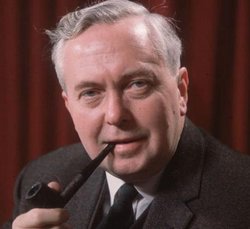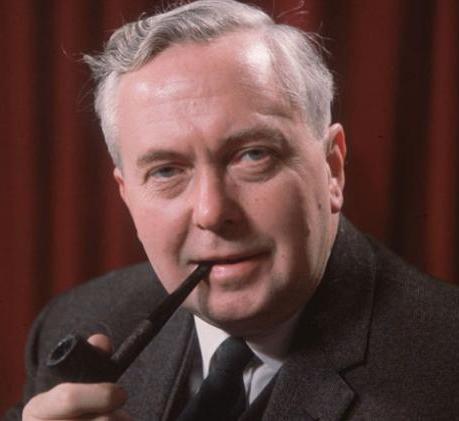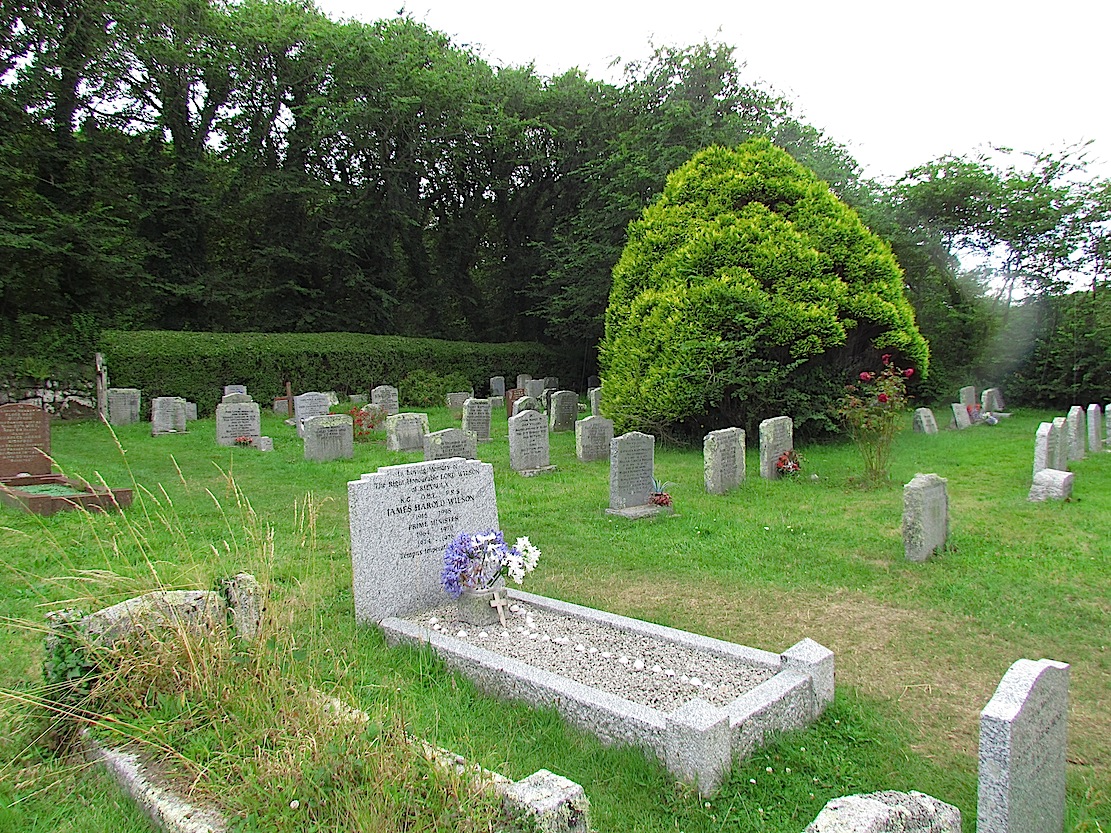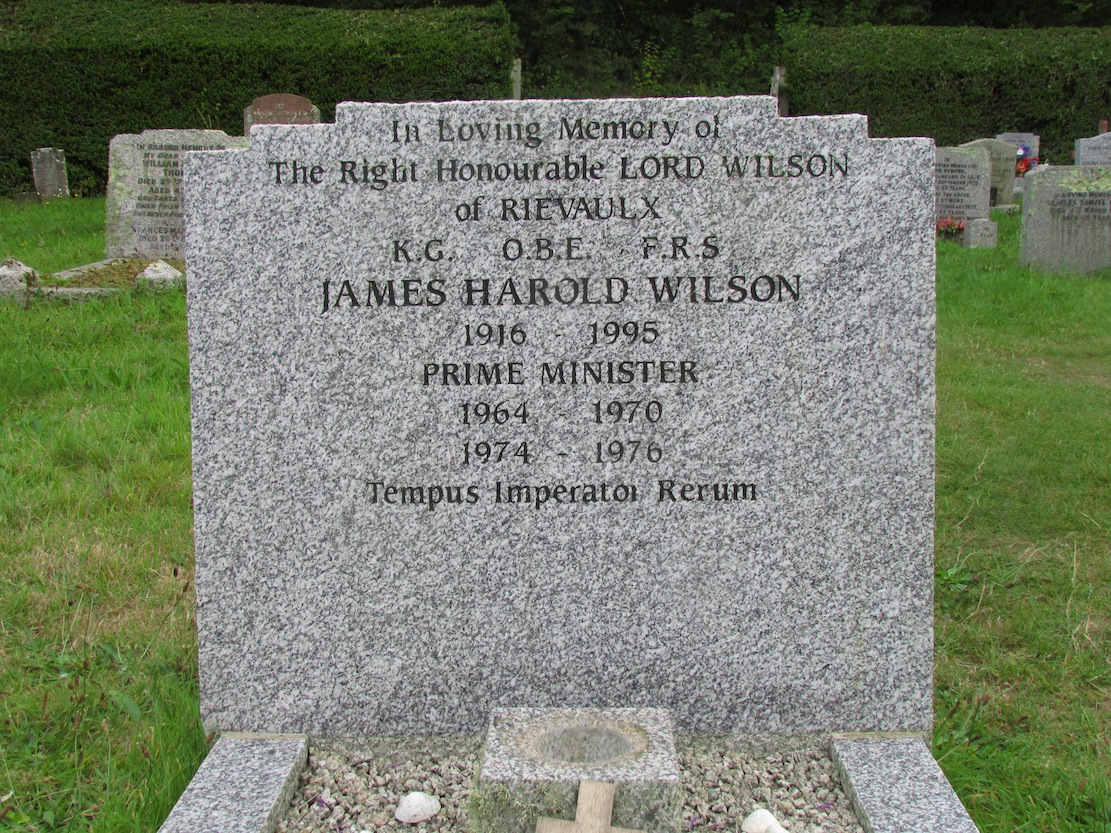British Prime Minister. He gained international recognition by serving as the Prime Minister of the United Kingdom twice, from October 16, 1964 to June 19, 1970 and from March 4, 1974 to April 5, 1976. In the four years between his service, Sir Edward Heath, a Conservative, served as Prime Minister. Born the son of James Harold, an industrial chemist, and Ethel, a school teacher, his family had been active in politics in England as well as Australia. After attending a couple of local schools, he attended Jesus College at Oxford with a grant, obtaining a degree in philosophy, politics, and economics with major academic awards in 1934. He became politically active in college as a member of the Liberal Party but soon turned to the Labour Party. He also held positions as a lecturer in Economic History at New College and as a junior research fellow at nearby University College. During World War II, he served in a civil position as a secretary to a cabinet member. In 1945, he published his book "New Deal for Coal," which was the Labour Party's plans for nationalizing the coal mines. After the war, he was elected to the House of Commons for Ormskirk and later became MP for Huyton. He was made President of the Board of Trade by Prime Minister Clement Attlee in 1947, becoming, at age 31, the youngest member of the Cabinet since 1792. In 1951, he resigned his post in protest of the government cutting health care benefits to finance arms for the Korean War and became the Labour Party's spokesman for finance and foreign affairs. He served as Shadow Chancellor from 1955 to 1961, then as Shadow Foreign Secretary from 1961 to 1963. Elected to office in 1964 by a narrow victory, his first term in office as Prime Minister was mainly positive, with low unemployment rates and signs of economic prosperity. At age 48, he was the youngest prime minister in seventy years. In 1965, the death penalty was abolished in England, and the Sexual Offences Act of 1967 was passed, which decriminalized certain homosexual offenses. In his second term, he enacted social reforms in health, housing, price controls, pensions, provisions for disabled people, and education for all, addressing child poverty as well as workers' and farmers' needs. He supported relaxing the divorce laws and granting equality to ethnic minorities and gender. He kept Britain from the Vietnam War while supporting the United States' efforts. After 200 years, theatre censorship was finally abolished in 1968. Upon returning to the office of Prime Minister in 1974, there were many changes that had to be overcome with quarrels inside the Labour Party and not a strong Party hold in Parliament. Unemployment was high, and the budget was weak. Britain voted to stay in the European Community. He attempted to resolve The Troubles in Northern Ireland as well as Rhodesia. On March 16, 1976, five days after his 60th birthday, he announced his resignation as of April 5th. He was exhausted with early signs of health decline. In April of 1976, Queen Elizabeth appointed him a Knight of the Garter, and in 1983 he was created a life peer. He did serve in the House of Lords until one year before his death. After his retirement, he made several television interviews. Besides his 1945 book, he published "The Labour Government, 1964–1970" in 1971, "The Governance of Britain" in 1976, and "Final Term: The Labour Government 1974–76" in 1979. "Mr. Wilson" was mentioned in George Harrison of the Beatles' 1966 song, "Taxman." In 1966, he was created the first Chancellor of the newly created University of Bradford, a position he held until 1985. At the age of 24, he married Mary Baldwin, daughter of a congregational minister, and the couple had two sons. He died from the complications of colon cancer and Alzheimer's disease.
British Prime Minister. He gained international recognition by serving as the Prime Minister of the United Kingdom twice, from October 16, 1964 to June 19, 1970 and from March 4, 1974 to April 5, 1976. In the four years between his service, Sir Edward Heath, a Conservative, served as Prime Minister. Born the son of James Harold, an industrial chemist, and Ethel, a school teacher, his family had been active in politics in England as well as Australia. After attending a couple of local schools, he attended Jesus College at Oxford with a grant, obtaining a degree in philosophy, politics, and economics with major academic awards in 1934. He became politically active in college as a member of the Liberal Party but soon turned to the Labour Party. He also held positions as a lecturer in Economic History at New College and as a junior research fellow at nearby University College. During World War II, he served in a civil position as a secretary to a cabinet member. In 1945, he published his book "New Deal for Coal," which was the Labour Party's plans for nationalizing the coal mines. After the war, he was elected to the House of Commons for Ormskirk and later became MP for Huyton. He was made President of the Board of Trade by Prime Minister Clement Attlee in 1947, becoming, at age 31, the youngest member of the Cabinet since 1792. In 1951, he resigned his post in protest of the government cutting health care benefits to finance arms for the Korean War and became the Labour Party's spokesman for finance and foreign affairs. He served as Shadow Chancellor from 1955 to 1961, then as Shadow Foreign Secretary from 1961 to 1963. Elected to office in 1964 by a narrow victory, his first term in office as Prime Minister was mainly positive, with low unemployment rates and signs of economic prosperity. At age 48, he was the youngest prime minister in seventy years. In 1965, the death penalty was abolished in England, and the Sexual Offences Act of 1967 was passed, which decriminalized certain homosexual offenses. In his second term, he enacted social reforms in health, housing, price controls, pensions, provisions for disabled people, and education for all, addressing child poverty as well as workers' and farmers' needs. He supported relaxing the divorce laws and granting equality to ethnic minorities and gender. He kept Britain from the Vietnam War while supporting the United States' efforts. After 200 years, theatre censorship was finally abolished in 1968. Upon returning to the office of Prime Minister in 1974, there were many changes that had to be overcome with quarrels inside the Labour Party and not a strong Party hold in Parliament. Unemployment was high, and the budget was weak. Britain voted to stay in the European Community. He attempted to resolve The Troubles in Northern Ireland as well as Rhodesia. On March 16, 1976, five days after his 60th birthday, he announced his resignation as of April 5th. He was exhausted with early signs of health decline. In April of 1976, Queen Elizabeth appointed him a Knight of the Garter, and in 1983 he was created a life peer. He did serve in the House of Lords until one year before his death. After his retirement, he made several television interviews. Besides his 1945 book, he published "The Labour Government, 1964–1970" in 1971, "The Governance of Britain" in 1976, and "Final Term: The Labour Government 1974–76" in 1979. "Mr. Wilson" was mentioned in George Harrison of the Beatles' 1966 song, "Taxman." In 1966, he was created the first Chancellor of the newly created University of Bradford, a position he held until 1985. At the age of 24, he married Mary Baldwin, daughter of a congregational minister, and the couple had two sons. He died from the complications of colon cancer and Alzheimer's disease.
Bio by: Linda Davis
Inscription
Prime Minister
1964-1970
1974-1975
Tempus Imperator Rerum (Time the Commander of Things).
Family Members
Advertisement






